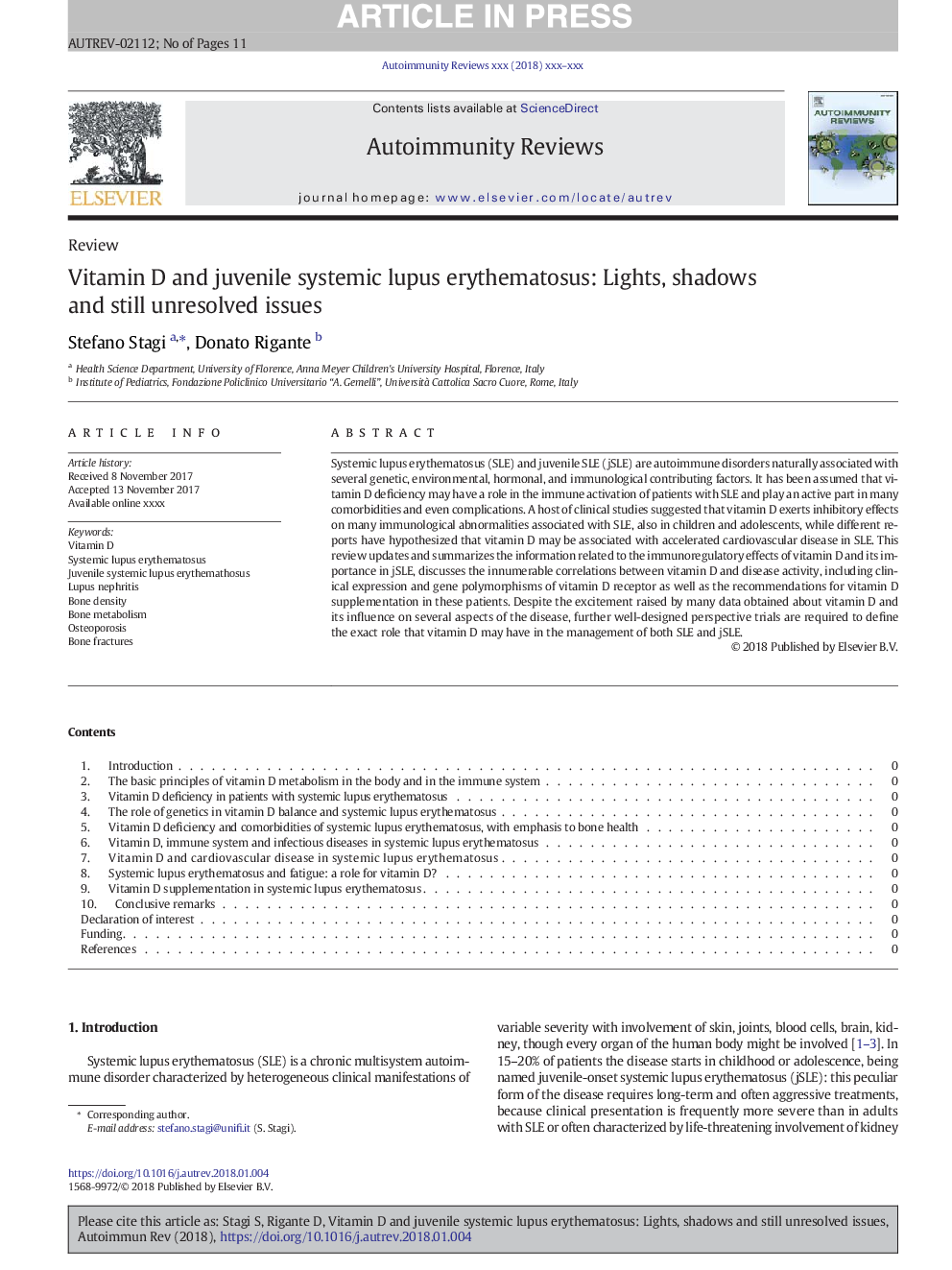| Article ID | Journal | Published Year | Pages | File Type |
|---|---|---|---|---|
| 8736456 | Autoimmunity Reviews | 2018 | 11 Pages |
Abstract
Systemic lupus erythematosus (SLE) and juvenile SLE (jSLE) are autoimmune disorders naturally associated with several genetic, environmental, hormonal, and immunological contributing factors. It has been assumed that vitamin D deficiency may have a role in the immune activation of patients with SLE and play an active part in many comorbidities and even complications. A host of clinical studies suggested that vitamin D exerts inhibitory effects on many immunological abnormalities associated with SLE, also in children and adolescents, while different reports have hypothesized that vitamin D may be associated with accelerated cardiovascular disease in SLE. This review updates and summarizes the information related to the immunoregulatory effects of vitamin D and its importance in jSLE, discusses the innumerable correlations between vitamin D and disease activity, including clinical expression and gene polymorphisms of vitamin D receptor as well as the recommendations for vitamin D supplementation in these patients. Despite the excitement raised by many data obtained about vitamin D and its influence on several aspects of the disease, further well-designed perspective trials are required to define the exact role that vitamin D may have in the management of both SLE and jSLE.
Keywords
Related Topics
Life Sciences
Immunology and Microbiology
Immunology
Authors
Stefano Stagi, Donato Rigante,
